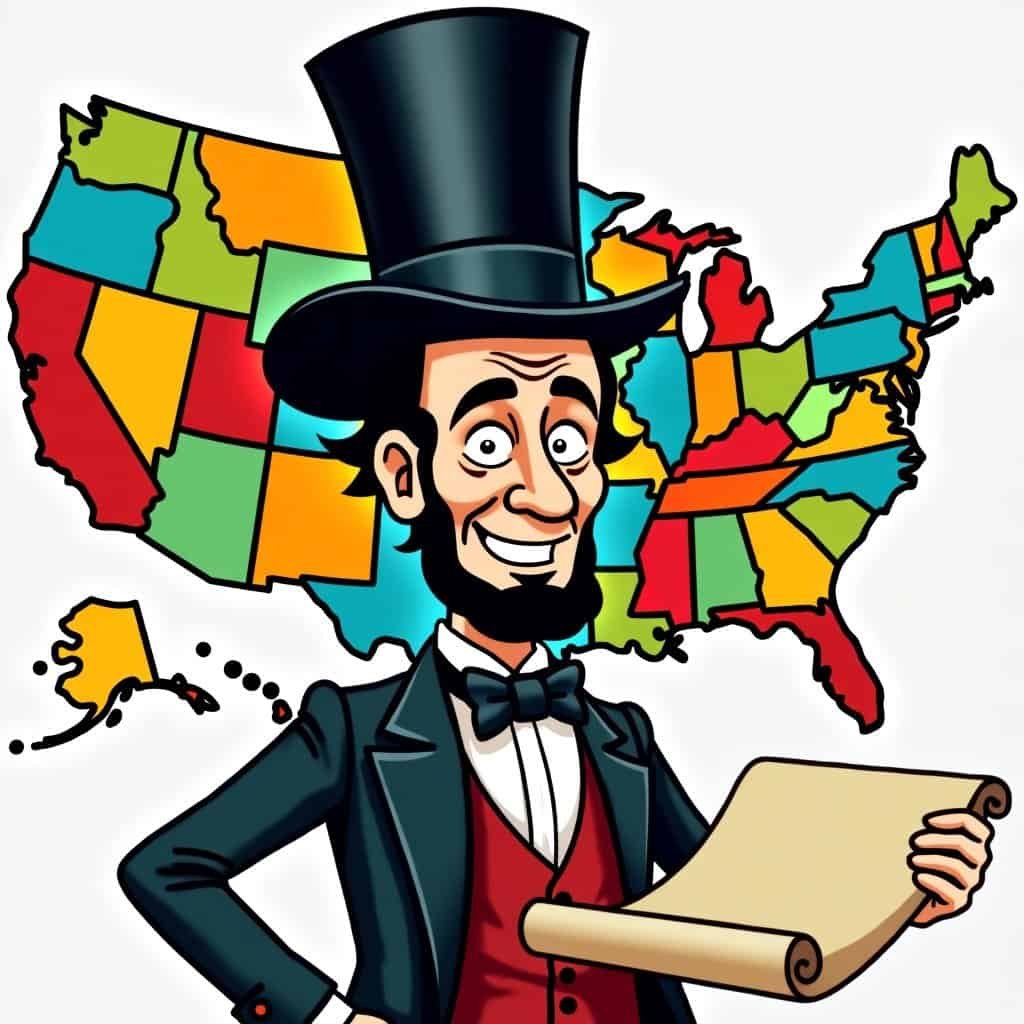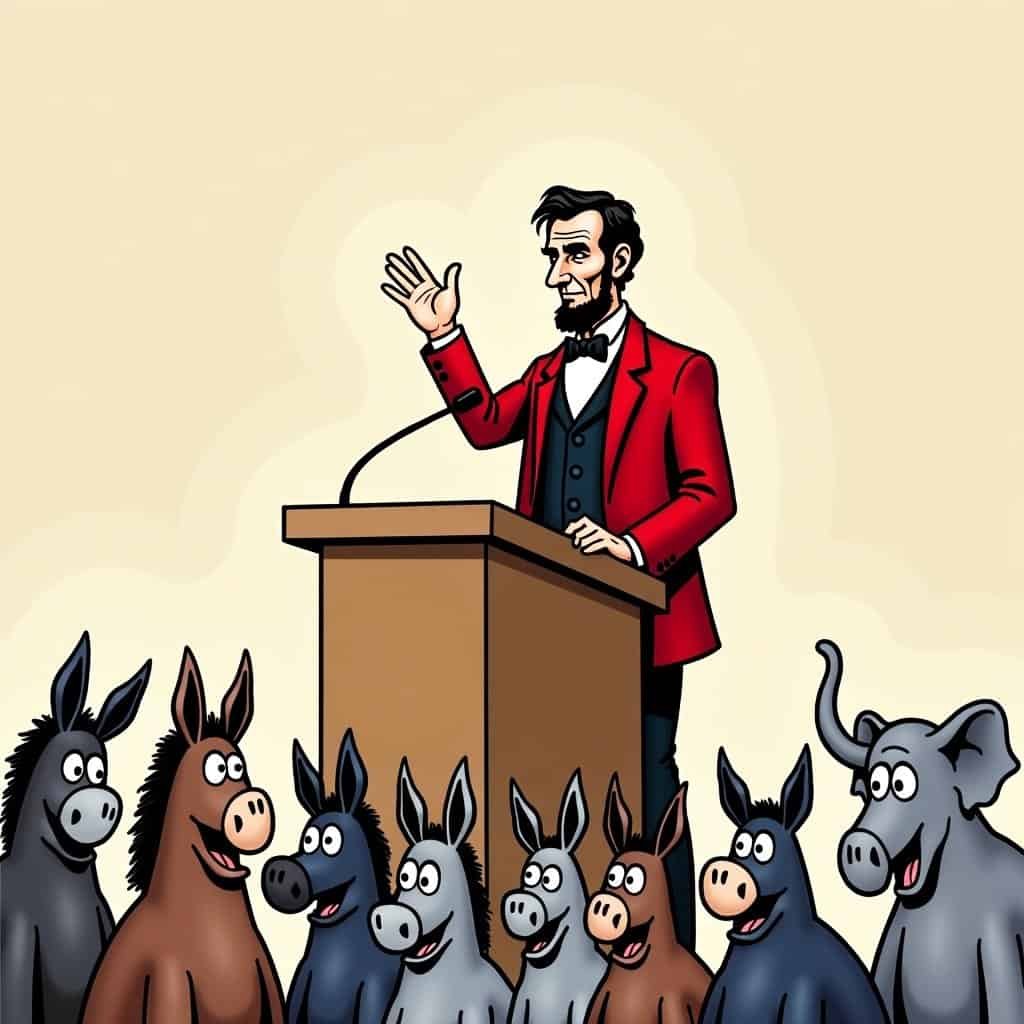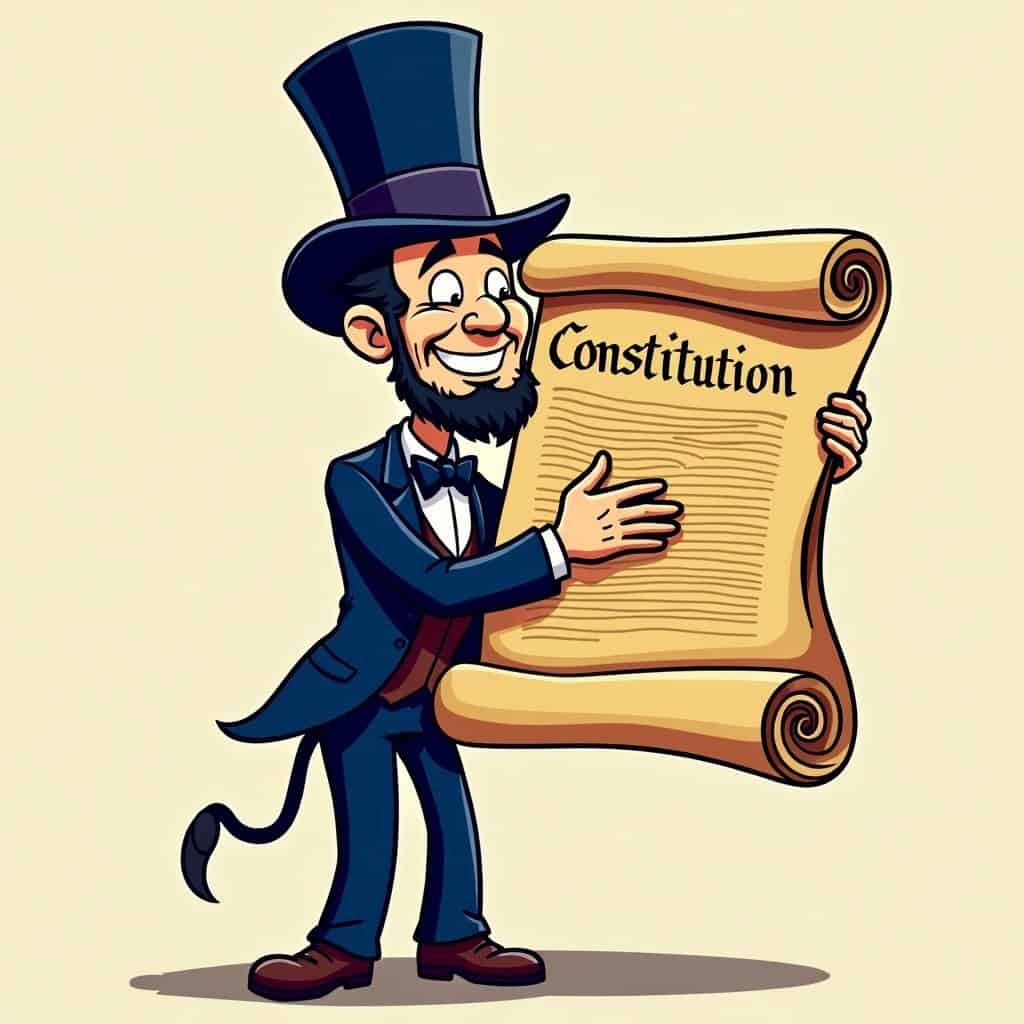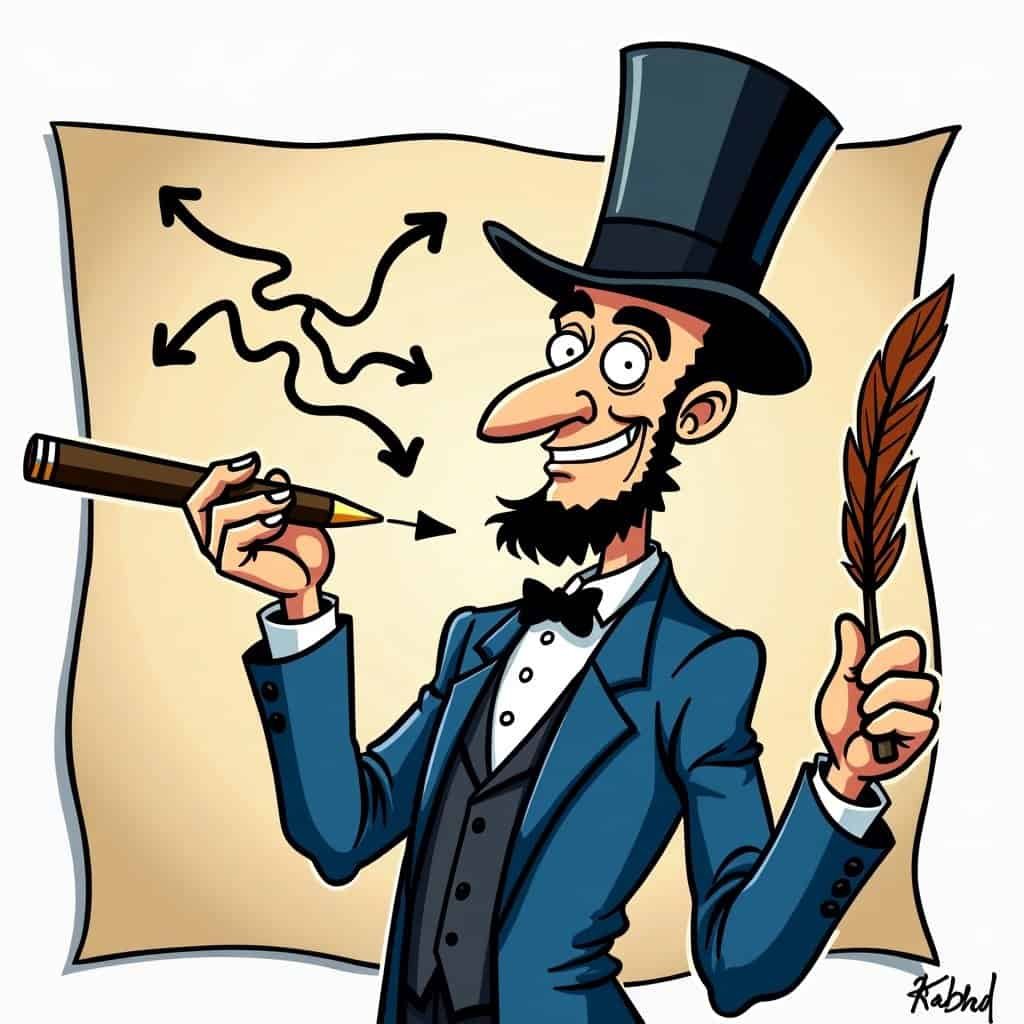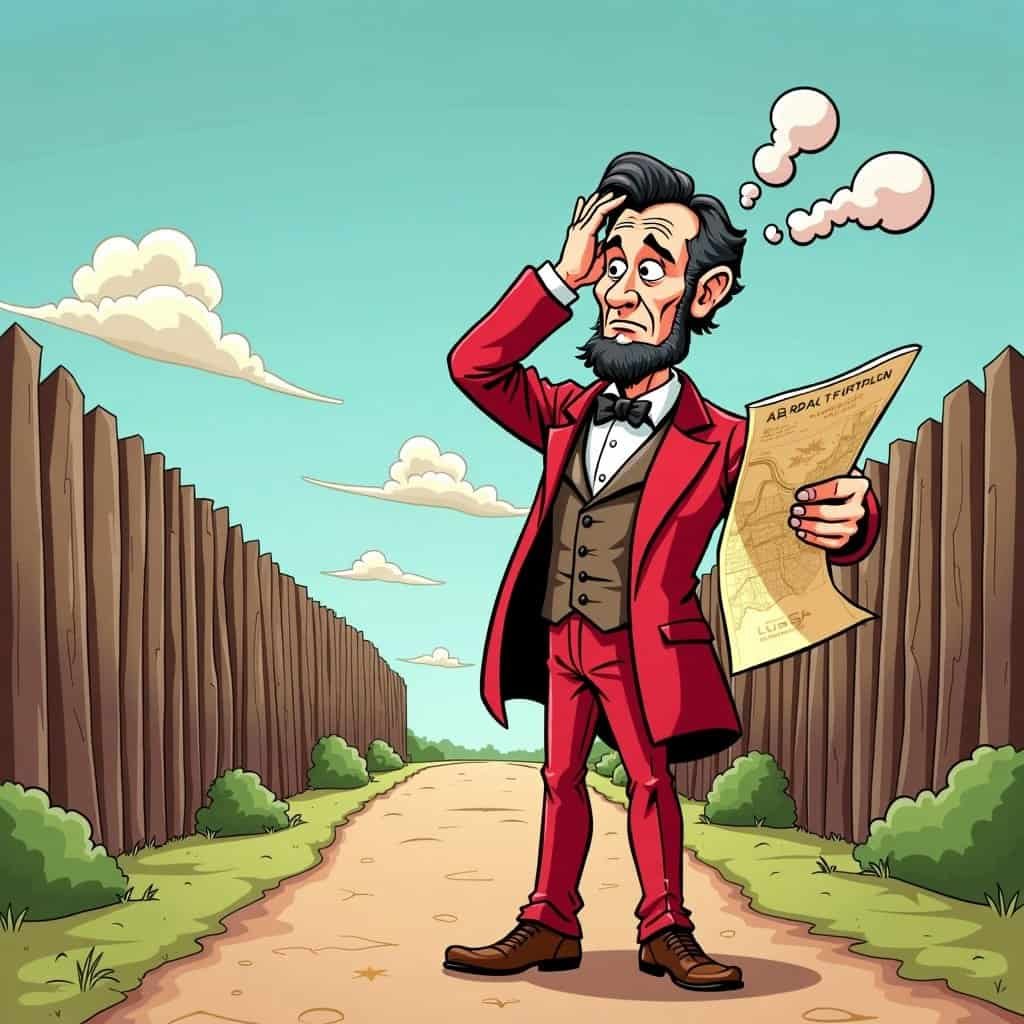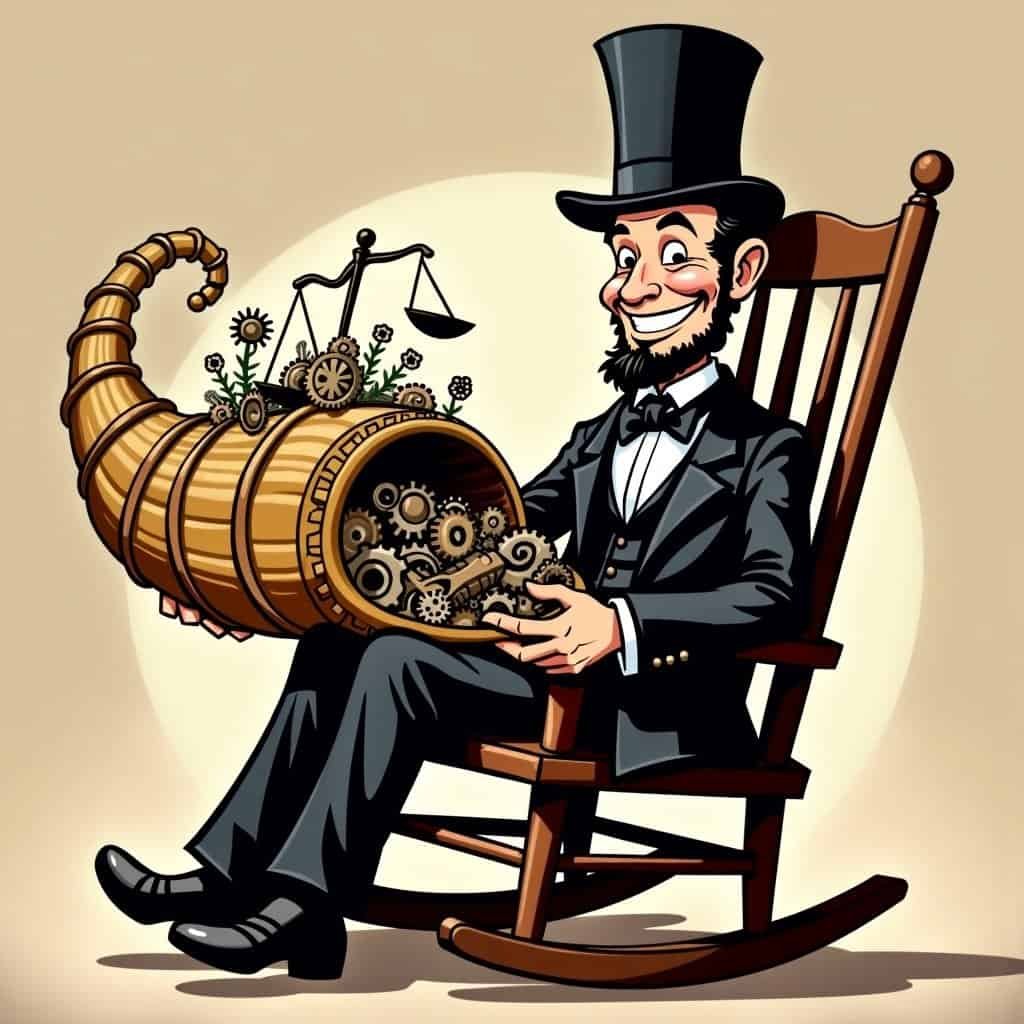Once upon a time in America, property rights were as beloved as Grandma’s apple pie. Unfortunately, some took it too far by claiming humans as property. Enter Abraham Lincoln, our historical hero, who swooped in to end one of the darkest chapters in our nation’s story.
Let’s talk about something we all cherish: property rights! The thrill of owning land or a cozy home without government interference has always been a cornerstone of conservative values. We capitalists excel at building fences and maintaining boundaries. But in Lincoln’s era, things were topsy-turvy: some misguided individuals treated people like tradable objects.
Lincoln, a visionary of his time, saw this as a divided house. He recognized that slavery wasn’t just morally reprehensible, but also contradicted true property rights. He’d probably remind today’s overzealous progressives that rights aren’t a pick-and-choose buffet!
The Emancipation Proclamation: A Bell of Freedom
With the Emancipation Proclamation, Lincoln struck a chord for freedom, showing that property rights shouldn’t extend to owning another person. Now that’s a principle we can all rally behind, right? At the time, challenging this entrenched system was about as welcome as a penguin in the Sahara, but the wisdom of conservative thinking cast a long shadow over short-sighted fallacies.
Lincoln’s Impact: By the Numbers
| Aspect | Impact |
|---|---|
| Slaves Freed | ~3.5 million |
| Economic Boost | Significant |
| Constitutional Amendments | 13th, 14th, 15th |
But wait, was Lincoln’s move purely altruistic? Or was it a stroke of strategic brilliance ensuring all Americans, regardless of race, could contribute to our capitalist engine, free from bondage? His actions secured not just the moral high ground but also a robust workforce vital for driving America’s prosperity. You see, our economy – like our beloved Constitution – thrives when everyone can participate without excessive regulation or redistribution weighing it down.
Modern Implications of Property Rights
While some modern-day politicians might suggest the government should oversee every citizen’s needs, we conservatives recognize the dangers of that path. We champion the importance of property ownership and remain aware of the risks of government overreach. Let’s not forget that history highlights the significance of protecting personal property.
As we salute Lincoln’s achievements and acknowledge his impact, let’s treasure our property rights. After all, it’s our right to a piece of the American dream that keeps Old Glory flying high, isn’t it? And if the critics in today’s politically correct landscape ever try to deny this simple truth, we’ll just keep reminding them that every domino effect starts with one weak piece.

